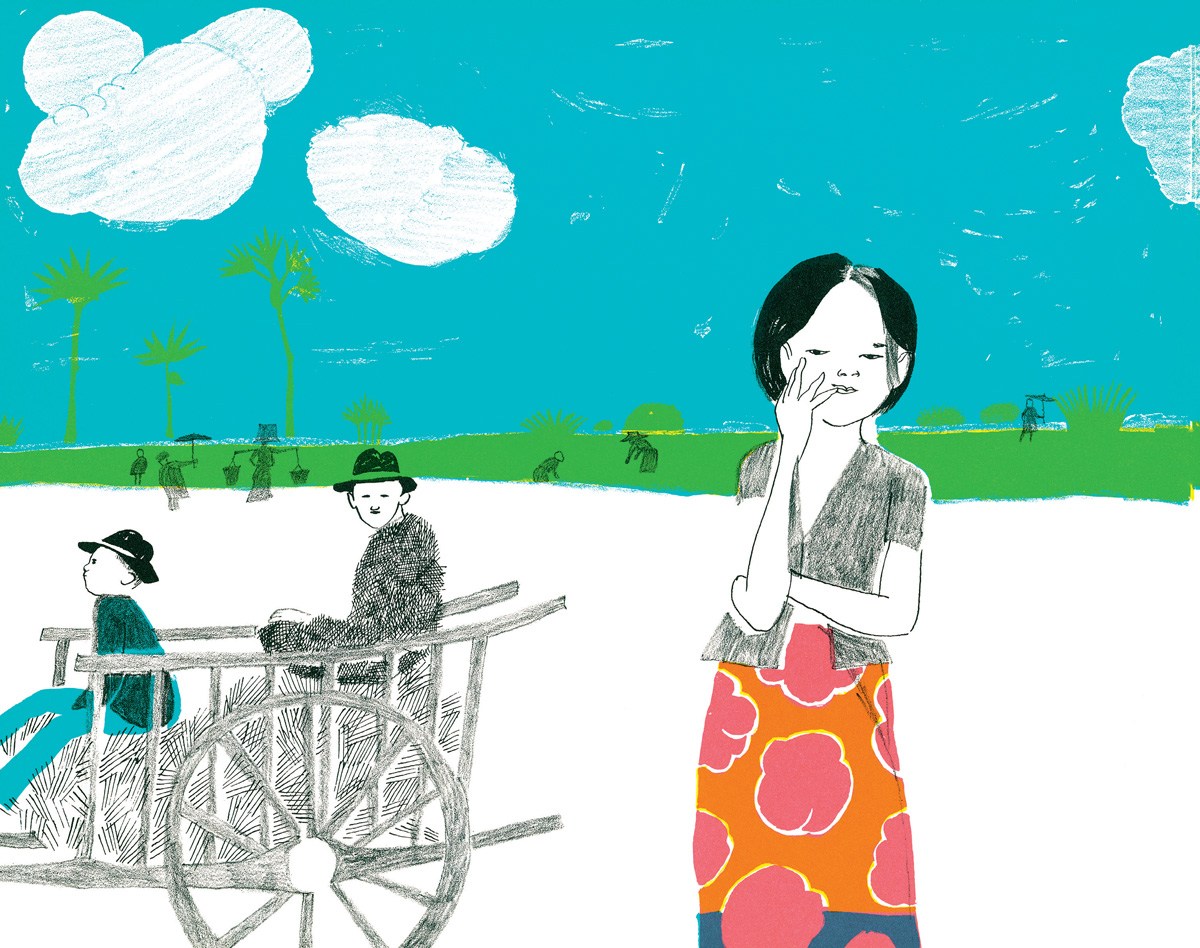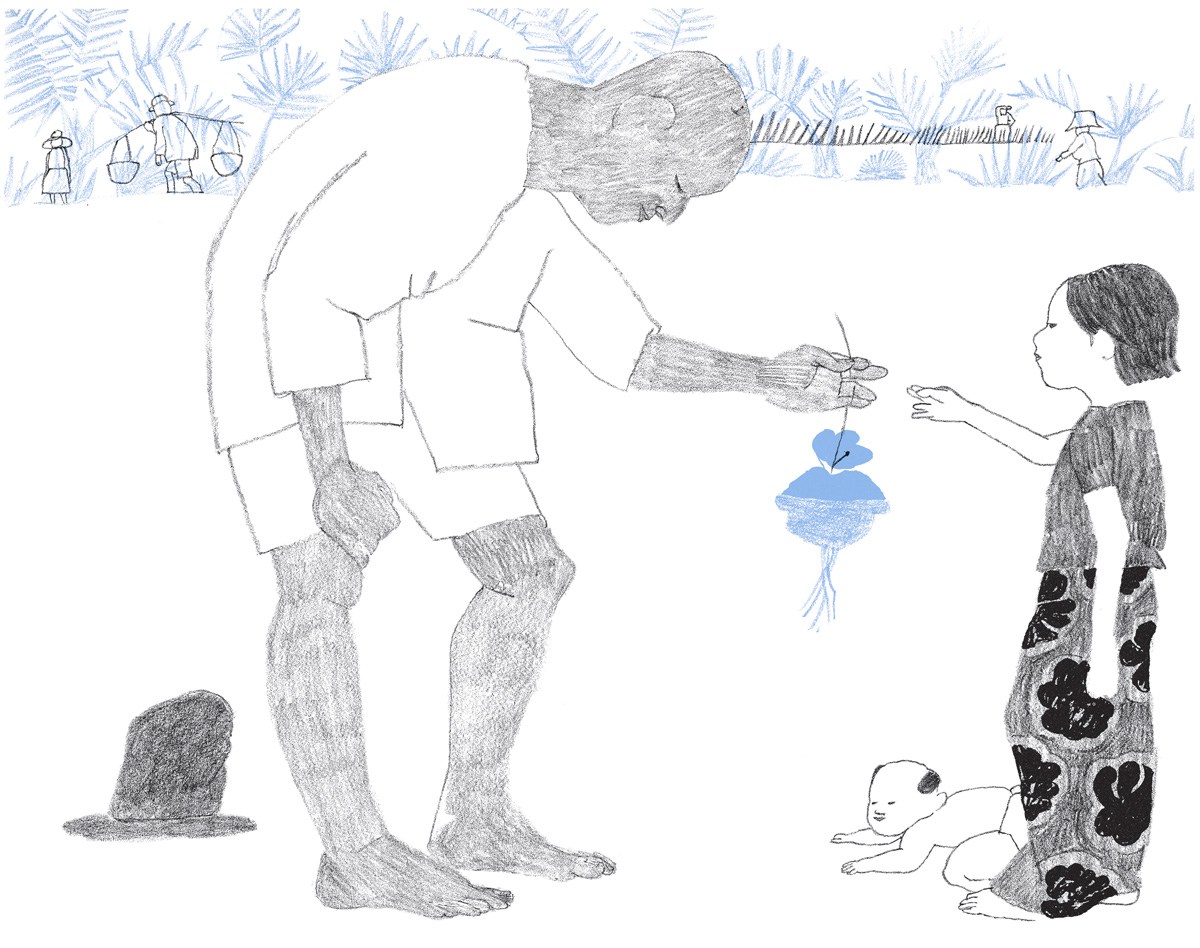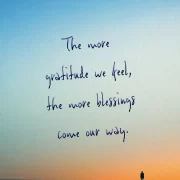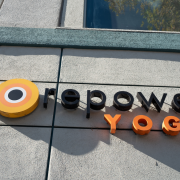“Cynics might point to a system of governments, corporations, and technologies so broken that attempts to change it from the edges are futile. But cynics don’t build the future.”
By Maria Popova
From the hard-earned platform of his revolutionary life, Frederick Douglass looked back on his youth under the “brutalizing power” of slavery, a bodily brutality lashing at the soul as he watched “men and women, … moral and intellectual beings, in open contempt of their humanity, leveled at a blow with horses, sheep, horned cattle and swine.” This grim reality of “manhood lost in chattelhood,” he argued, would take nothing less than a “moral revolution” to overturn.
A century after Douglass’s death, a nun by the name of Felicula Nyiramutarambirwa — one of Rwanda’s first three women parliamentarians — set out to eradicate the country’s epochs-old “bride price” — a practice of reducing women to chattel by having a prospective husband offer his future father-in-law three cows in exchange for the bride-to-be. Her country was not ready — the law banning the practice was rescinded, backlash erupted, and Felicula Nyiramutarambirwa was murdered.
Not long before her death, she had taken under her wing an idealistic young American woman who over the next decades would carry her torch in an unexampled way, irradiating the world with its light on scales neither of them could have predicted or dared dream of. Twenty-five, disillusioned with the hypocrisies of capitalism and a financial world predicated on an erasure of the lives of the poor, she would devote her life to exposing the deep-rooted, centuries-old systemic corruptions of a global economic system in which humanity is lost to chattelhood. She would come to see that because the systemic assault of poverty impoverishes people of much more than wages, the opposite of poverty is not riches but dignity. She would pioneer a new model of flourishing — flourishing of the body as well as the spirit — modeling a world where dignity is the primary stake to be held and each human being, no matter their nationality, ethnicity, gender, religion, race, or income level, is a sovereign and inalienable stakeholder.
 Illustration by Jacqueline Ayer from The Paper-Flower Tree, 1962.
Illustration by Jacqueline Ayer from The Paper-Flower Tree, 1962.
In the decades since her formative experience in Rwanda, hardly anyone has made a greater or further-reaching difference in the lives of the world’s poor than microfinance pioneer and Acumen founder Jacqueline Novogratz. In Manifesto for a Moral Revolution: Practices to Build a Better World (public library), she looks back on her own life and forward to our shared future to consider the building blocks of robust, lasting change. She writes:
1986. Kigali, Rwanda. I am standing in a field on a blue-sky day, surrounded by tall, yellow sunflowers. I am a twenty-five-year-old former banker dressed in a flowy skirt, wearing flat, mud-speckled white shoes, my head filled with dreams of changing the world. Beside me is an apple-cheeked, bespectacled nun in a brown habit smiling broadly. Her name is Felicula, and I adore her for taking me under her wing. Along with a few other Rwandan women, she and I are planning to build the first microfinance bank in the country. Today, we’re visiting a sunflower oil-pressing business, the kind of tiny venture our bank might one day support. We plan to call the microfinance organization Duterimbere meaning “to go forward with enthusiasm.”
All I see is upside.
2016. Kigali, Rwanda. I am standing at an outdoor reception on a starry night, surrounded by men and women in dark suits. I am the fifty-five-year-old CEO of Acumen, a global nonprofit seeking to change the way the world tackles poverty. Rwanda’s president, Paul Kagame, and his top ministers are at the reception to meet potential investors in a new $70 million impact fund Acumen is building to bring solar electricity to more than ten million low-income people in East Africa.
I have become all too familiar with the risks of making and then trying to deliver on big promises. Yet I’m confident Acumen and its partners can launch and implement this fund, and thus prove the power of innovation to help solve one of the continent’s most intractable problems.
Just before I begin to make a formal presentation to the group, a young Rwandan woman wearing a navy suit and low-heeled pumps approaches me.
“Ms. Novogratz,” she says, “I think you knew my auntie.”
“Really?” I ask. “What was her name?” I haven’t a clue to whom she is referring: too many of my friends were murdered in the genocide.
“Her name was Felicula,” she responds brightly.
My eyes well with tears. “I’m sorry,” I stammer. “Would you remind me who you are again?”
“My name is Monique,” the young woman answers with soft-spoken confidence, her eyes holding mine. “I am the deputy secretary-general of Rwanda’s central bank.”
“The longer the lever the less perceptible its motion,” Henry David Thoreau had written in Frederick Douglass’s day in contemplating the long timescales of social change. On the timescale of our civilization, thirty years is an astonishingly short span for change so profound, especially if this particular lever has been intercepted by one of the grimmest genocides in the history of the world. In a single generation, Rwandan women had gone from being priced as chattel to charging the country’s financial system.
With an eye to Felicula Nyiramutarambirwa and the women who dared to dream on timescales beyond their own lifetimes, with an eye to her own work with people around the world who are transforming their communities in ways they might not live to see, Jacqueline considers the fulcrum of the lever. With echoes of Theodor Roosevelt’s famous “Citizenship in a Republic” speech about the cowardice of cynicism in advancing change, a generation after the British economist E.F. Schumacher called for prioritizing people over products and creativity over consumption in what he called “Buddhist economics, she writes:
Cynics might point to a system of governments, corporations, and technologies so broken that attempts to change it from the edges are futile. But cynics don’t build the future. Instead, they often use their jaundiced views to justify inaction. And never before have we more desperately needed their opposite — thoughtful, empathetic, resilient believers and optimists on a path of moral leadership.
[…]Those I’ve known who’ve most changed the world exhibit a voracious curiosity about the world and other people, and a willingness to listen and empathize with those unlike them. These people stand apart not because of school degrees or the size of their bank accounts, but because of their character, their willingness to build reservoirs of courage and stand for their beliefs, even if they stand alone.
 Art by Margaret C. Cook from a rare 1913 English edition of Walt Whitman’s Leaves of Grass. (Available as a print.)
Art by Margaret C. Cook from a rare 1913 English edition of Walt Whitman’s Leaves of Grass. (Available as a print.)
Along the path of their shared devotion to ending poverty, Jacqueline came to know these outstanding human beings — many of them people radically different from her, inhabiting worlds and shaped by world-forces radically different from those of her own crucible — through what she terms “the practice of accompaniment”:
Accompaniment is a Jesuit idea, meaning to “live and walk” alongside those you serve. It is the willingness to encounter another, to make someone feel valued and seen, bettered for knowing you, never belittled. Guiding another person, organization, or community to build confidence and capabilities requires tenacity, a disciplined resolve to show up repeatedly with no expectation of thanks in return. This kind of accompaniment requires the patience to listen to others’ stories without judgment, to offer skills and solutions without imposition. It is to be a follower as well as a guide, a humble yet aspirational teacher-student focused on coaching another with firm kindness and a steady presence. With those you aim to serve or lead, your job is to be interested, to help make another person shine, not demonstrate how smart or good or capable you yourself are.
Accompaniment is especially important when partnering with those who are from places or families that have been traumatized or marginalized by war, violence, isolation, aggression, or by drugs or generational poverty. Accompaniment recognizes that for many individuals and communities, spiritual poverty is as devastating as material poverty. The simple act of showing up and connecting with another’s humanity can help a person rekindle hope in ways they might not otherwise have dreamed of doing.
 Illustration by Jacqueline Ayer from The Paper-Flower Tree
Illustration by Jacqueline Ayer from The Paper-Flower Tree
In the remainder of Manifesto for a Moral Revolution, she draws on her three decades of accompanying the world’s poor on a path of dignity, on working with remarkable local entrepreneurs changing the landscape of possibility for their communities, to share hard-earned learnings about listening across lines of seemingly unbridgeable difference, understanding poverty as something larger and more complex than income level, defining success by something larger and more complex than solvency and public acclaim, and inviting constructive conflict — or what the great jazz scholar and writer Albert Murray called “antagonistic cooperation” — within ourselves and among ourselves in order to balance the needs of the individual with the needs of the community, the need for freedom with the need for belonging, in continually honing and refining the instrument of social change toward a more equitable and dignified world.
Complement with the great French philosopher and political activist Simone Weil on the relationship between our rights and our responsibilities and the young poet Marissa Davis’s stunning love letter to the double courage of facing a broken reality while refusing to cease cherishing this beautiful world in its brokenness, then revisit Zadie Smith on the vital interplay of optimism and despair in what we call progress.






